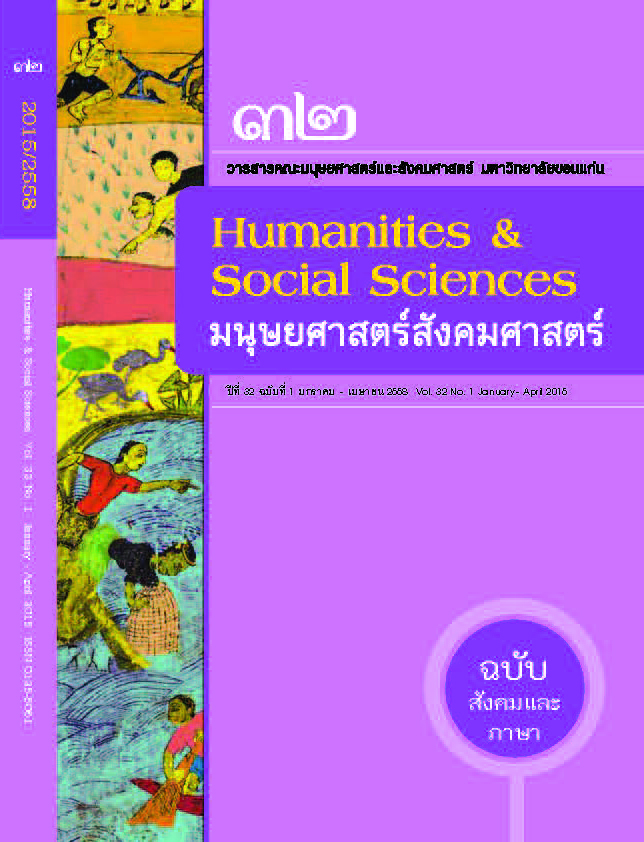Extensive Reading: A Success in Reader Autonomy
Keywords:
Extensive reading, learner autonomy, reader autonomyAbstract
Extensive Reading: A Success in Reader Autonomy
การอ่านแบบกว้างขวางนำไปสู่ความสำเร็จในความสามารถในการควบคุมการอ่าน
บทคัดย่อ
ความสามารถในการควบคุมการเรียนหมายถึงความสามารถของบุคคลในการมีความรับผิดชอบต่อกระบวนการเรียนของตนเองอย่างอิสระ ดังนั้นความสามารถในการควบคุมการอ่านจึงหมายถึงความสามารถของบุคคลที่จะดูแลกระบวนการเรียนของตนผ่านการอ่านด้วยความรับผิดชอบและความเป็นอิสระเพื่อให้ได้ประโยชน์จากการอ่านมากที่สุด หลักการพื้นฐานของการอ่านแบบกว้างขวางซึ่งสนับสนุนให้นักเรียนอ่านเพื่อความเพลินเพลินมากเท่าที่จะทำได้สามารถนำมาใช้เพื่อช่วยให้นักเรียนพัฒนาความสามารถในการควบคุมการอ่านในห้องเรียนทางภาษา โดยมีหลักการสำคัญสามประการที่ต้องคำนึงถึง ได้แก่ การมีส่วนร่วมของนักเรียนในกระบวนการเรียน การสะท้อนกระบวนการเรียนของนักเรียน และการใช้ภาษาเป้าหมายอย่างเหมาะสม
คำสำคัญ: การอ่านแบบกว้างขวาง ความสามารถในการควบคุมการเรียน ความสามารถในการควบคุมการอ่าน
Abstract
Learner autonomy is the ability of a person to be responsible for his or her own learning process independently. Therefore, reader autonomy is defined as the ability of a person to take care of his or her own learning process through reading with responsibility and independence in order to gain the most benefit from the reading. The basic principle of extensive reading, which is to encourage students to read with the focus on reading for pleasure as much as possible, can be used to promote reader autonomy in a language classroom. There are three important pedagogies to be concerned when extensive reading is used to promote reader autonomy in a language classroom: involvement of students in their learning process, reflection of students through their learning process, and appropriate target-language use.
Keywords: Extensive reading, learner autonomy, reader autonomy



